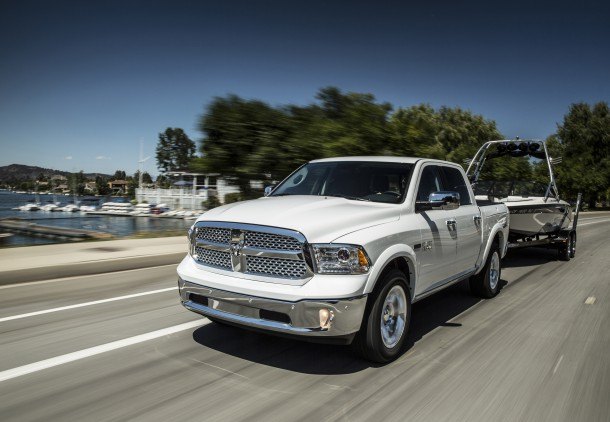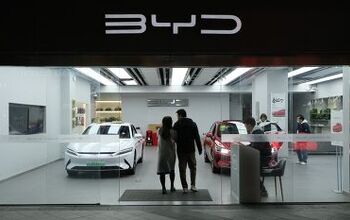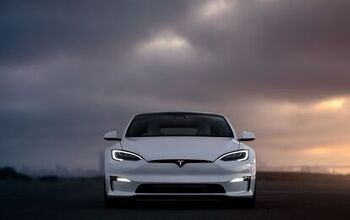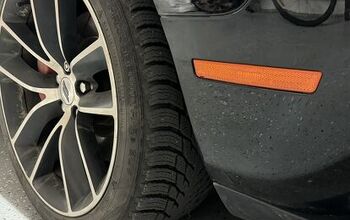Jeep and Ram EcoDiesels Are Plenty Dirty, West Virginia University Tests Show, But FCA's Having None of It

The university that sparked the emissions wildfire under Volkswagen has turned its testing equipment on Fiat Chrysler’s 3.0-liter EcoDiesel vehicles. The results aren’t pretty, especially for those with diminished lung capacity.
West Virginia University researchers who tested tailpipe emissions in real-world driving conditions claim the Ram 1500 and Jeep Grand Cherokee EcoDiesels, singled out by the Environmental Protection Agency in January for excess pollution and unauthorized emission control devices, are indeed quite harmful to air quality. The university plans to detail its findings in a report to be published within weeks.
FCA, which proved unable to sidestep the EPA’s wrath or a lawsuit from the U.S. Department of Justice, has spoken out against the university’s methods.
The Wall Street Journal, which received a copy of the study, reports that researchers tested 2014 and 2015 model year vehicles. The EcoDiesel was made available on 2014 to 2016 models. Due to the emissions flap, FCA has not been able to certify its 2017 EcoDiesel models for sale. The university chose to put five vehicles from two model years under the microscope because a previous emissions controversy forced FCA to recall 2014 models for select catalytic converter replacement.
What did the university discover? When tested in real-world conditions, the 2015 Rams reportedly emitted up to 25 times the allowable amount of smog-causing nitrogen oxide. The diesel 2015 Jeeps were eight times above the legal limit. As for the 2014 models, both the Jeep and Ram returned “significantly increased” emissions levels compared to tests performed in a lab.
The earlier recall “definitely didn’t fix the problem,” Dan Carder, director of West Virginia University’s Center for Alternative Fuels Engines and Emissions, told WSJ. He added, “when you see differences [between field and lab results], it’s suggesting there are control strategies that are making emissions controls perform differently in the test than in the field.”
If found guilty of violating the Clean Air Act, FCA could find itself on the hook for billions of dollars in penalties. The automaker has denied any wrongdoing, offering up a fix for the roughly 104,000 EcoDiesels already on the road and making software changes for the yet-to-be-certified 2017 model year. Its certification application landed on the EPA’s desk just days before the DOJ’s lawsuit.
FCA has also called the university’s findings into question. After trying in vain to discuss the findings with the researchers, the automaker issued a statement. The study “appears to have been commissioned by a plaintiffs’ law firm for the purposes of litigation,” FCA stated, referring to the lab’s funding by an outside firm headed by ex-Wall Street investment types.
FCA claims the university tested the vehicles in a far different manner than federal government lab procedures. The real-world tests saw the vehicles attain a speed 50 percent higher than in a simulated fashion in the lab. Payload was also 600 to 700 pounds greater.
The university claims it stands behind its findings and the method used to gather the information.
[Image: Fiat Chrysler Automobiles]

More by Steph Willems
Latest Car Reviews
Read moreLatest Product Reviews
Read moreRecent Comments
- Theflyersfan I think color is FINALLY starting to return to car lots. After what seems like over a lost decade of nothing but shades of gray, whites, and black, I'm seeing a lot more reds and blues creeping into luxury car lots. Except Audi and Volvo. They still have at least 6-8 shades of gray/silver. But they at least have a nice green. Honda and Acura seem to have a bunch of new colors. And all carmakers need to take a serious look at the shades of red seen at the Alfa Romeo lot and tell themselves they want that because that looks amazing.
- Bd2 Well, it's no Sonata, no does it have the panache of the Optima.
- Teddyc73 "eye-searingly"?
- Teddyc73 I applaud anyone who purchases a vibrant, distinct or less popular color. We need these people. Our road ways have turned into a dreary gloomy sea of white, black, silver and greys, most with the equally lifeless black wheels. Mr Healey is guilty of contributing to this gloom apparently. It looks like a black and white movie across the nation when grouped with our grey houses with grey interiors. Totally dull and lifeless. And what is with this awful hideous trend of dull grey with black wheels showing up everywhere? It's on everything. Just awful. Come on people! I'll keep my Ram 1500 with it's deep rich sparkling Western Brown paint as long as I can.
- Shipwright As my Avatar shows I had an '08 GT 500, Grabber Orange convertible. I now own a '12 GT 500 Kona Blue coupe.


































Comments
Join the conversation
An institution that is pushing for alternative fuels finds an issue with diesel fuelled vehicles , what a joke. If the vehicles pass the EPA test without any software that only operates only during said testing, those vehicles meet the mandated standard. Tell the ambulance chasers to go pound salt !!!
Maybe, just maybe, it is the test that is flawed - not the software. The test requires that vehicles PASS THE LAB TEST. Those that are cleaner in real-world use but do not conform to the TEST, are failed. The obvious conclusion here is that the test is flawed. The second obvious conclusion here is that the university is anything but dispassionate - they are waging a jihad on petroleum-powered automobiles.